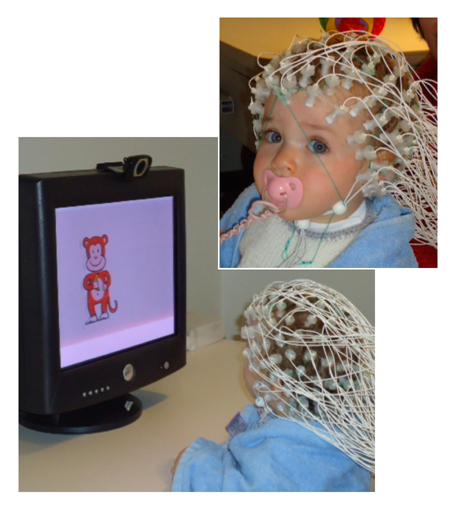Familial poverty affects the toddler brain function, according to a study

A study carried out by the University of Granada (UGR) has revealed that familial poverty has an impact on the toddler brain function. Infants of families with lower economic resources and a lower level of education present immature functioning and reduced ability to detect errors.
This study involved the participation of 88 toddlers of 16 months of age. They had to observe how someone completed a series of simple puzzles with which the babies had previously been familiarized.
Researchers measured brain responses via high-density electroencephalogram, both when the puzzles were correctly completed and when they were incorrectly completed (for example, the legs and body of a chick with the head of an elephant).
Charo Rueda, from the Department of Experimental Psychology of the UGR and lead author of this paper, says, "The brain response when observing errors is well characterized in adults, and it's an excellent measure of the brain system related to attention and learning."
The research shows that the brain reactions of 16-month-old babies are very similar to those of adults doing the same task, "which allows us to measure the efficacy of the attentional brain system in preverbal infants. This is important because this protocol may be of use for detecting early risks in the development of attention problems," says Rueda.
However, the study also establishes for the first time a relationship between the socioeconomic status of the family and the performance of the toddler's brain when detecting errors. This is important, "since it shows that the parenting environment (educational and resource poverty) has an impact on the children's brain functioning, early on."
Thus, the results indicate that the brains of toddlers raised in families with lower levels of education and resources have comparatively immature functioning. "This result highlights the impact that poverty may have on early brain development and the need to alleviate educational and economic inequalities for the proper development of the children," Rueda concludes.
More information: Ángela Conejero et al. Frontal theta activation associated with error detection in toddlers: influence of familial socioeconomic status, Developmental Science (2016). DOI: 10.1111/desc.12494



















